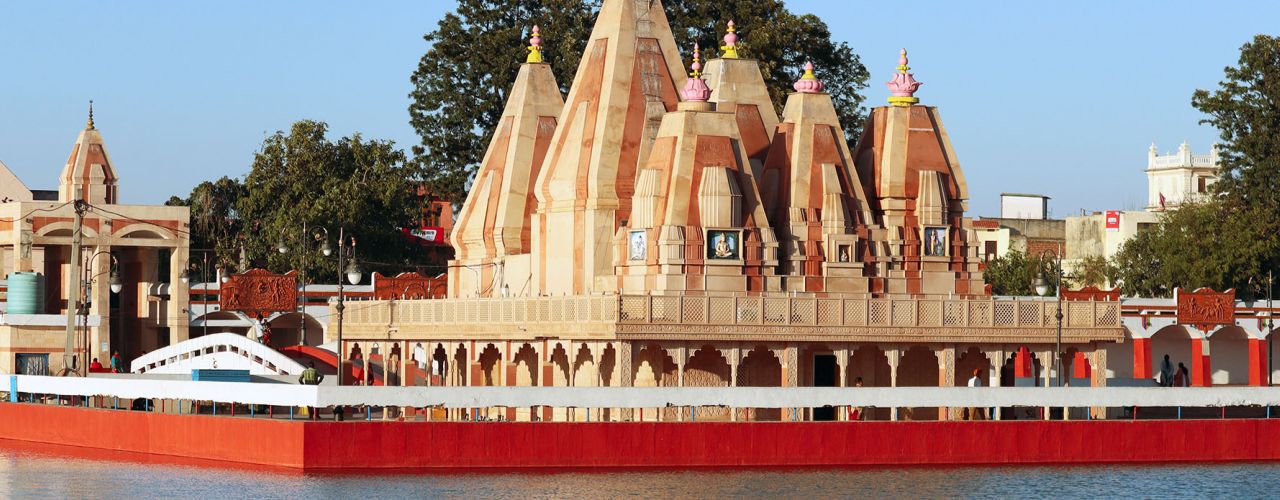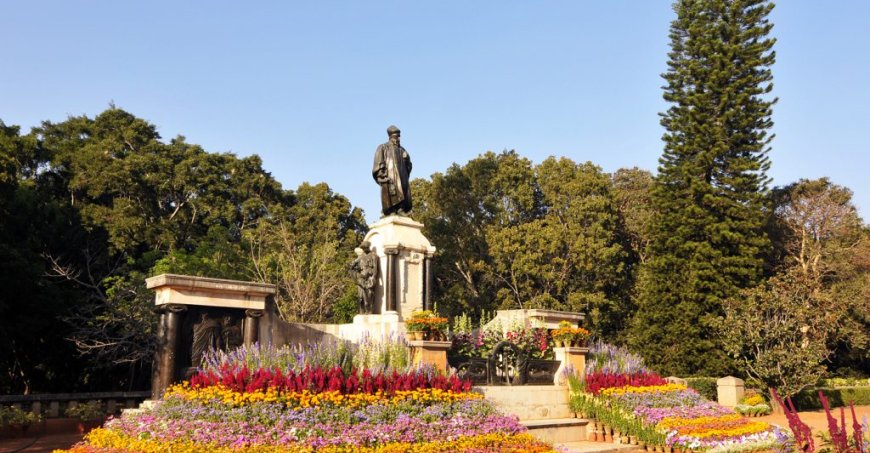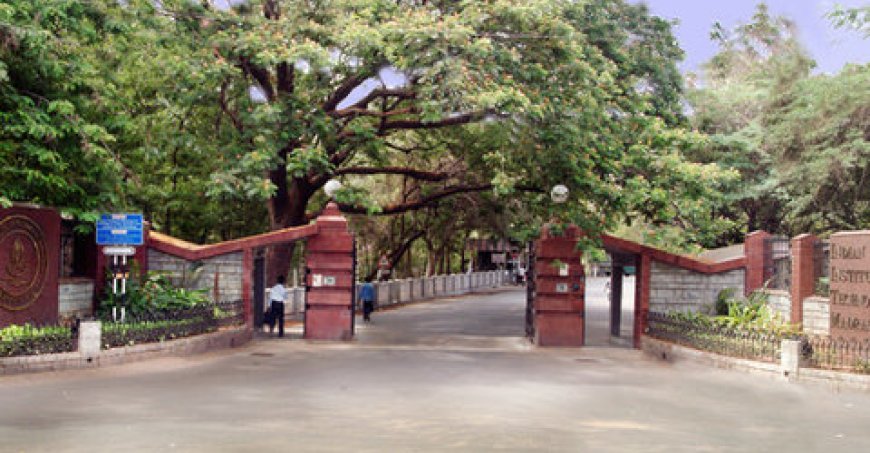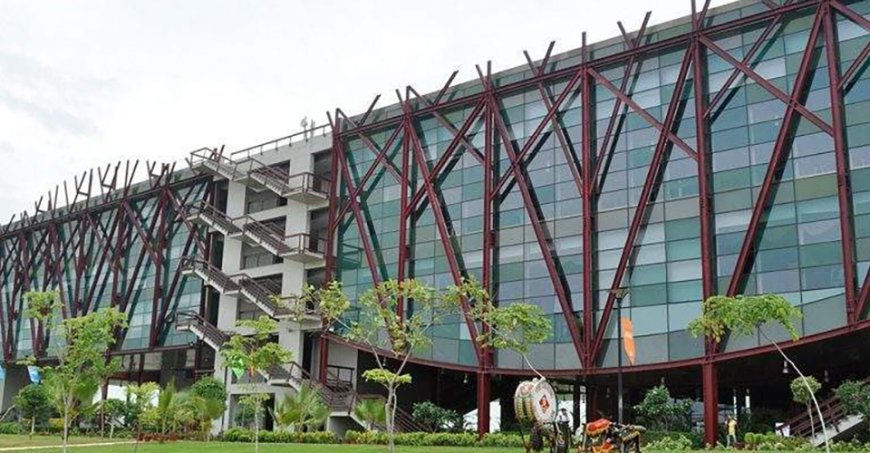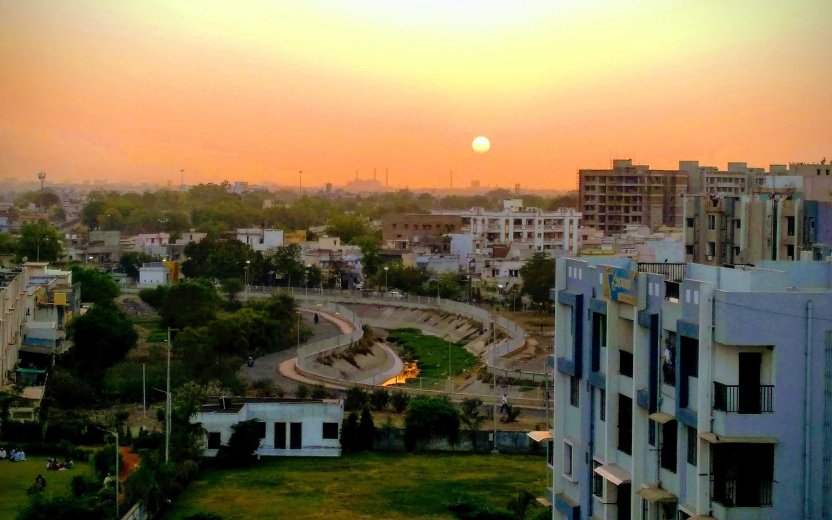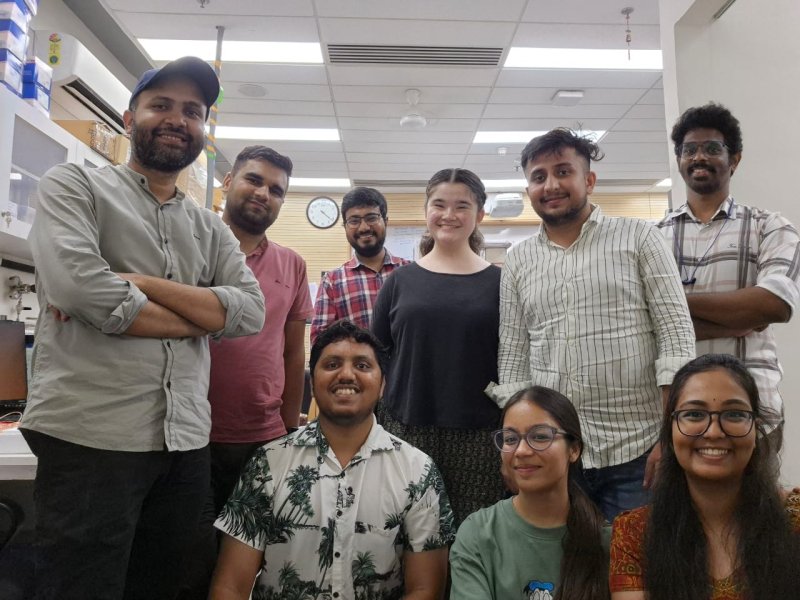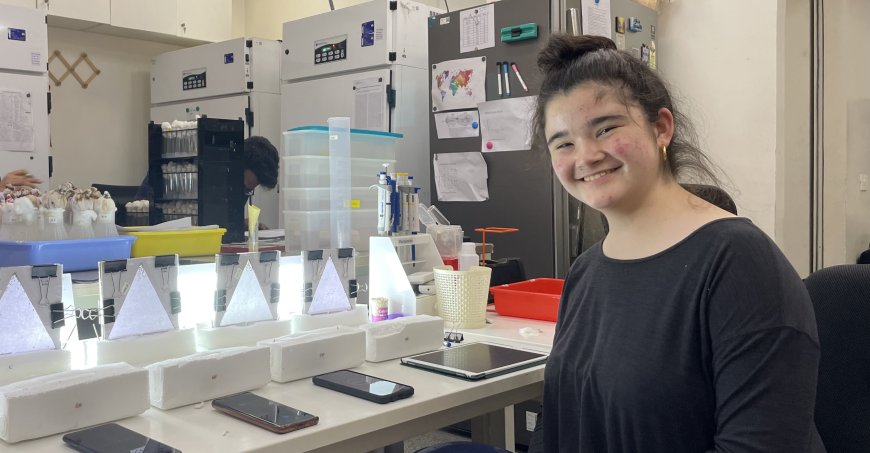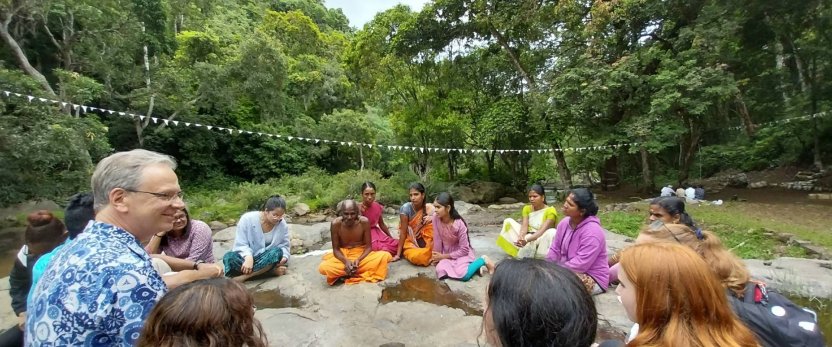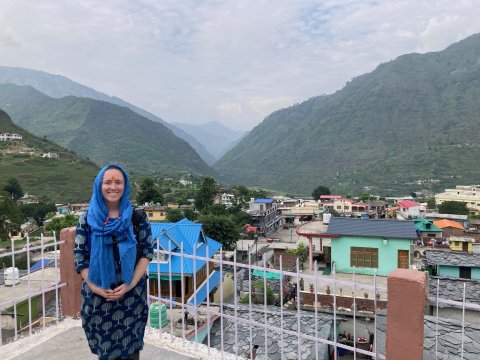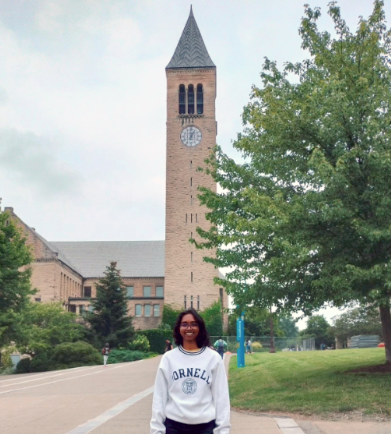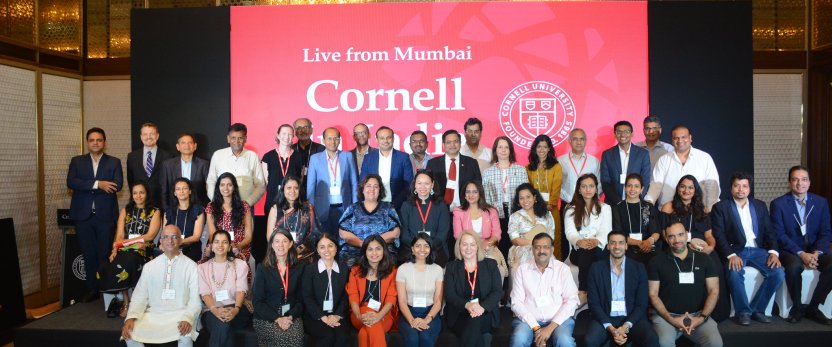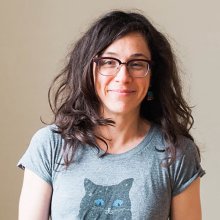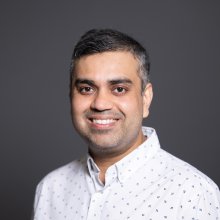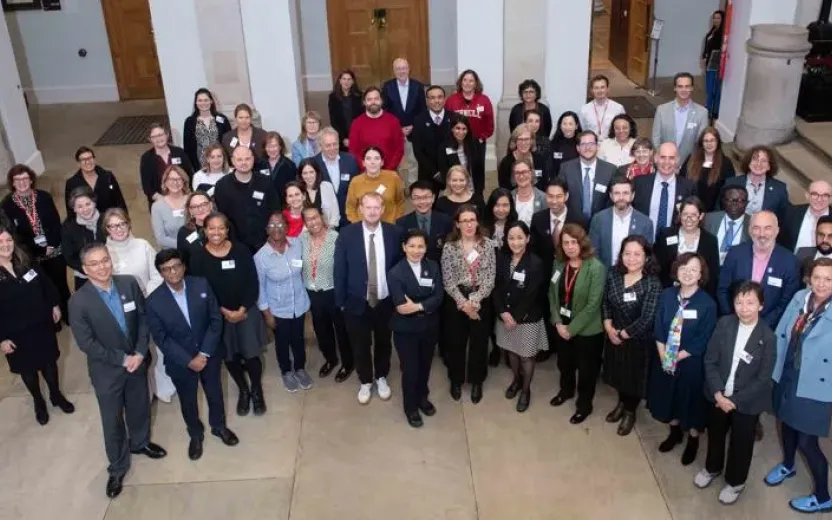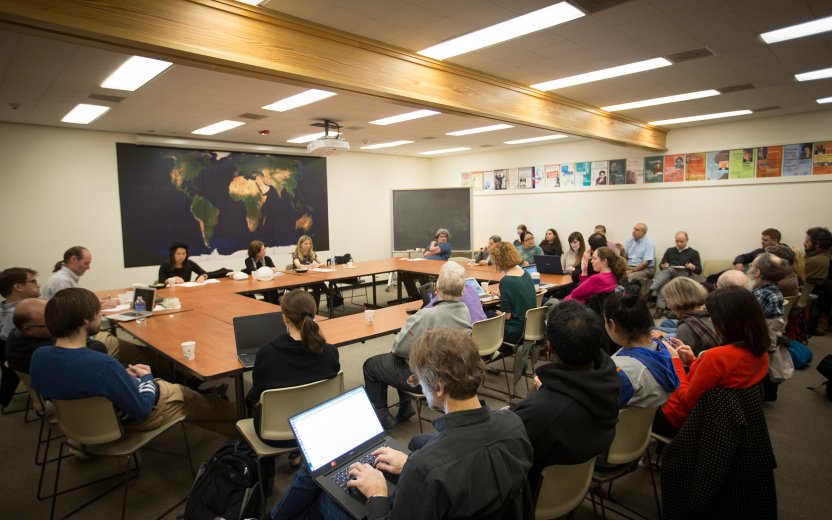India
University Partners in India
Ashoka University
Ashoka University is a private, nonprofit liberal arts university established in 2014, offering undergraduate and graduate programs in the humanities, social sciences, and natural sciences. Located in Sonipat, Haryana, the university emphasizes multidisciplinary education, scholarship, and research, attracting students and faculty from around the world.
Indian Institute of Science
Indian Institute of Science (IISc), founded in 1909, is a public research university for science and engineering. An Institute of Eminence, it emphasizes interdisciplinary research, innovation, and global collaboration. Its Bengaluru campus offers engineering, natural sciences, and technology programs that bring together world-class faculty and students.
Indian Institute of Technology Madras
Indian Institute of Technology Madras (IITM), established in 1959, is a public technical university known for excellence in engineering, science, and technology. Its campus in Chennai, Tamil Nadu, is home to 16 departments and numerous research centers. IITM fosters global partnerships through initiatives like the Gopalakrishnan-Deshpande Centre for Innovation and Entrepreneurship.
O.P. Jindal Global University
O.P. Jindal Global University (JGU), established in 2009, is a private, nonprofit research institution recognized as an Institute of Eminence. With a focus on global engagement, interdisciplinary education, and research, JGU collaborates internationally across sectors. Its 80-acre residential campus in Sonipat, Haryana, houses nine schools spanning law, business, policy, and the arts.
Connecting Through Culture and Study
Innovative thinkers and problem solvers from India have made Cornell their Ivy League university for more than a century. Today, Global Hubs partners, deep learning and research collaborations, and 1,600 alumni bring Cornell and India together.
Research Highlight
Research Highlight: HEaTR for a Warming World
A climate collaboration with Hubs partners in India, the United Kingdom, Ghana, and Singapore, the Global Center for Household Energy and Thermal Resilience was launched with a joint seed grant and received a two-year $250K design grant from the National Science Foundation (NSF).
Student Experiences
Hub partnerships have enriched students' academic and pre-professional experiences and expanded their opportunities to engage inside and outside the classroom.
How to Become a Global Citizen
Haruna Floate '26 (CALS) spent 10 weeks at Ashoka University in summer 2024 in the Integrative Genetics and Evolution Laboratory led by Sudipta Tung. During her internship, Floate contributed to a project investigating the effects of diet on behavior and aging in fruit flies. Read about Floate's experience in the Cornell Chronicle.
“As a nutritional science major, I loved being able to connect my classroom knowledge to laboratory research, all while immersing myself in the rich and vibrant culture of India. My summer at Ashoka helped me to strengthen my sense of cultural awareness, intercultural communication, and empathy. I will carry these takeaways with me as I pursue my professional goal of serving as a multilingual healthcare provider.”
Hands-On Learning in Sustainable Development
Nilgiris Field Learning Program (NFLP) connects Cornell faculty and students with practitioners and community members in southern India to explore sustainability, conservation, livelihoods, and education through a partnership between the Keystone Foundation (an Indian non-governmental organization) and Cornell. NFLP's summer program focuses on community wellness, mental health, health systems, and healthcare delivery in resource-limited settings.
Gaining Global Research Skills
Graduate student Phoebe Wagner spent a year studying Hindi and conducting qualitative research in North India with support from the Einaudi Center. Based at Navdanya Biodiversity Farm in Dehradun, she examined sacred sites to explore how cultural connections to landscapes support biocultural diversity. This experience strengthened her research skills and shaped her career in public opinion analysis.
“Studying Hindi with Professor Sujata Singh and connecting with students in the South Asia Program were highlights of the fellowship during my time on campus. Over the summer, researching in India deepened my understanding of cultural and ecological resilience. The FLAS fellowship enabled me to pursue my graduate degree and contributed to my career path.”
Two-Way Exchange with Ashoka University
Shwetha Prakash, a physics major from Ashoka, spent a summer at Cornell as part of our Hubs partnership.
“My research internship in accelerator physics at Cornell University has been an extraordinary journey. I had the privilege to learn from and collaborate with world-class scientists, engage in hands-on experiments, and learn a lot about what it means to be a researcher and a scientist. It has fueled my passion for scientific exploration as an undergraduate.”
Faculty Forward
Cornell Leadership Connects with India Partners and Alumni
A Cornell delegation led by Vice Provost for International Affairs Wendy Wolford visited India in 2024 to strengthen partnerships with top institutions and connect with alumni. Faculty and staff met with researchers and university leaders in Bangalore, Mumbai, and Chennai, exploring collaboration opportunities in public health, engineering, and sustainability. The trip also included alumni gatherings and cultural experiences. Read more about the visit.
Cornell Faculty Leads
Sarah Besky
Director of South Asia Program; Professor, Anthropology of Work (ILR) and Anthropology (A&S)
"Our partners in India offer unique spaces to promote research collaborations and student exchange opportunities in a wide variety of disciplines from across Cornell's colleges and schools. For me, broadening the inclusiveness and internationalism of our community here—and cultivating research and learning that emerges from these exchanges—is one of the most exciting potentials of Cornell Global Hubs."
Aditya Vashistha
Assistant Professor, Information Science, Cornell Bowers CIS
"India is a world power and an emerging economy with rich cultural diversity. My work focuses on technology and social impact. We have a program where students from India are part of my lab, and it's also important for us to collaborate in India. Our partnerships are essential to identify the right problems to work on and pool and share the resources and knowledge."
Alumni Tribute: Remembering Ratan Tata
The late Ratan N. Tata ’59, BArch ’62, was one of India’s most influential and respected business leaders and philanthropists and a former Cornell trustee who became the university’s largest international donor—supporting scholarships, research to reduce rural poverty and malnutrition in India, and technology innovation.

